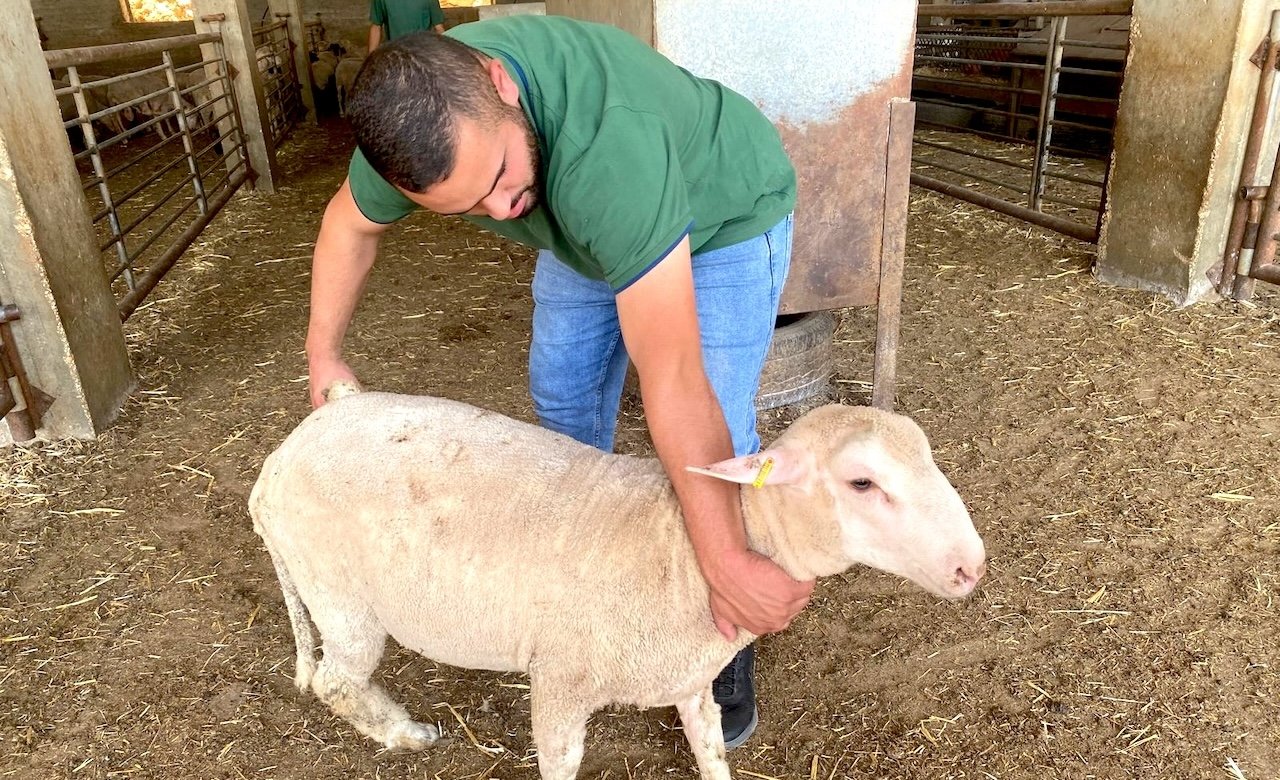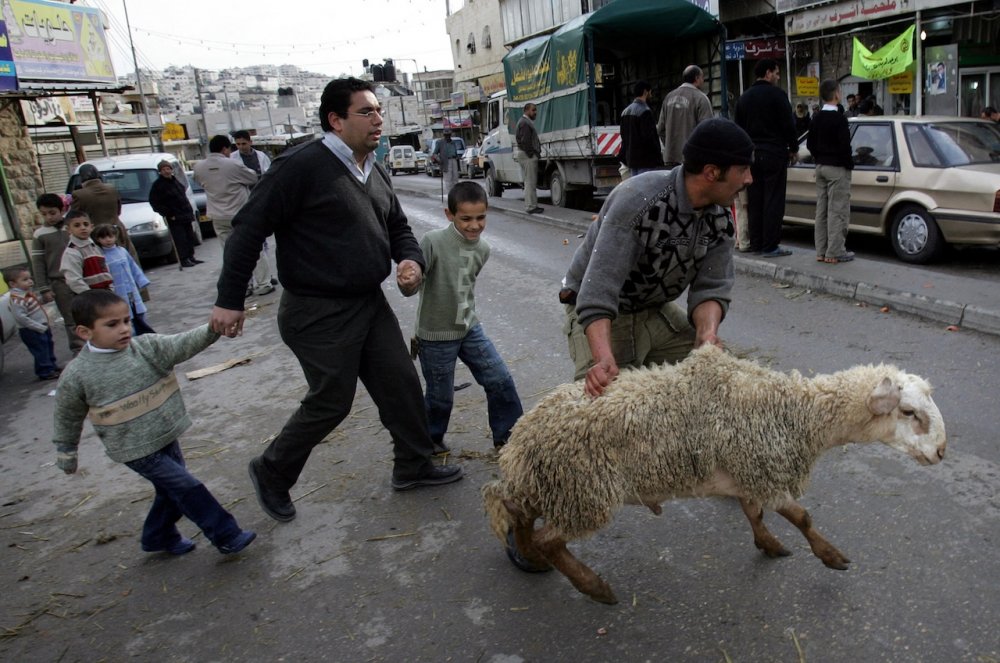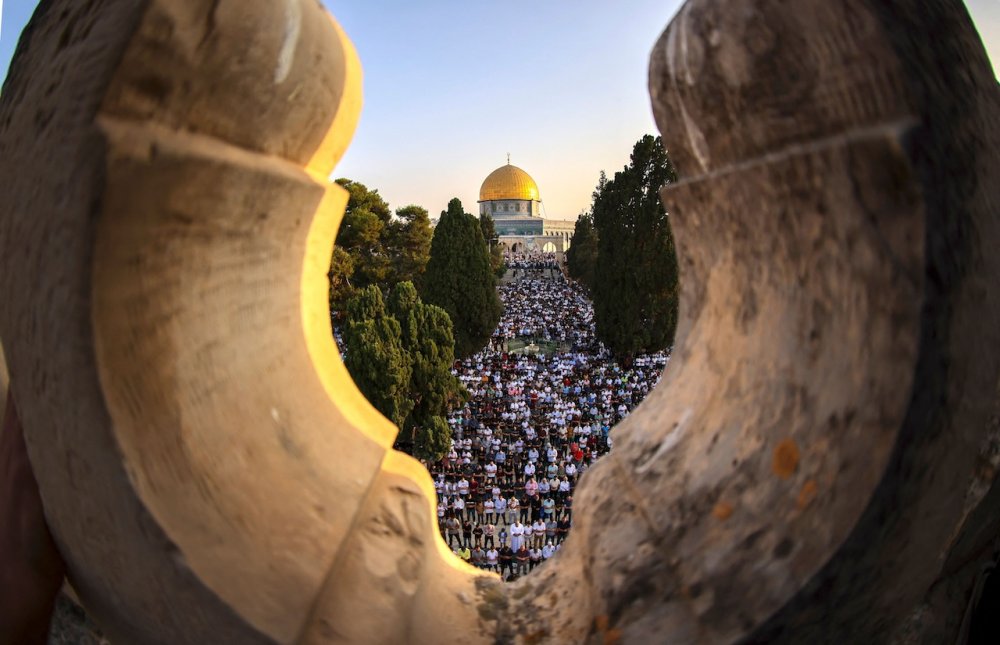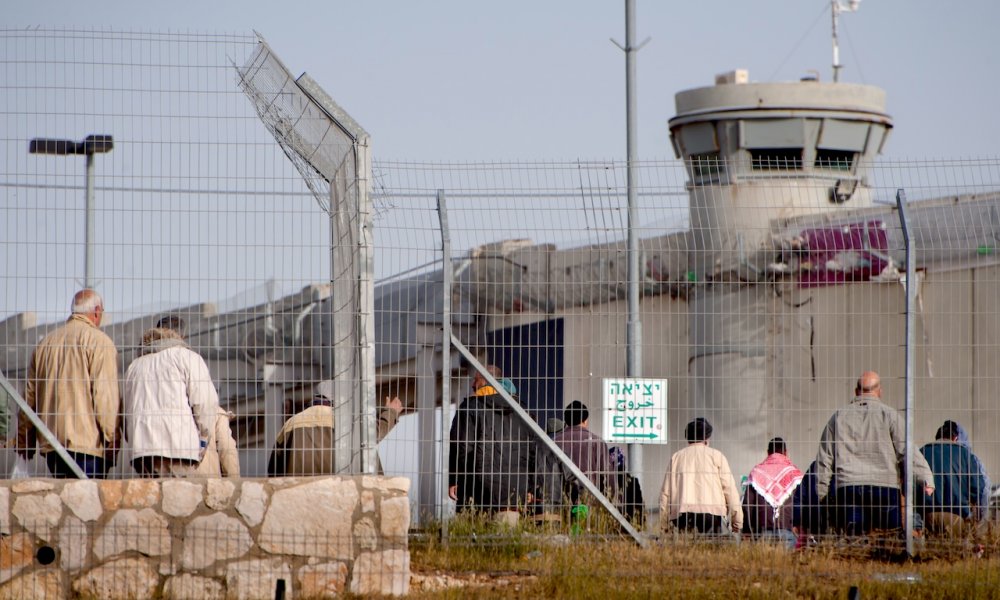Ahmad bought the meat to be distributed according to religious specifications: The sheep must not be sick and must weigh more than 50 kilograms. The butcher agreed to divide the meat into small portions that could be distributed to households in his neighborhood, because he knew firsthand which families were needy. Many such families were already near the butcher, because they knew that people would be distributing meat in accordance with religious custom for this holiday. A kilo of meat costs more than $30 in Jerusalem and $20 in the rest of the West Bank, according to a butcher in Bethlehem. The butcher asked for a favor: He wanted permission to distribute small meat scraps to the needy who often come looking for them. Ahmad readily agreed.
“Believe me, life is difficult for the majority of the Palestinian people, including those with regular employment. I know many of these families. Even families who have a breadwinner do not make enough money to buy meat. So, Eid al-Adha is an excellent time for these families to get meat, which they don’t usually have as part of their meals,” the Bethlehem butcher told Jerusalem Story.1 He was looking forward to making the holiday a little brighter for these families.
Meat in hand, Ahmad had one problem: He had to pass the Israeli checkpoint between Bethlehem and Jerusalem, Checkpoint 300. He knew that as a young Palestinian, his car would likely be checked very thoroughly by Israeli security personnel at the checkpoint. If they found the meat, he might be fined NIS 50,000 (about $15,000) or even sent to jail, and his car might be confiscated.
Ahmad decided to camouflage the meat packages by wrapping them up in bags with well-known Israel logos. He then stuck the bags deep in the trunk and placed vegetable bags and bags with children’s sweets in the front and over the top, while the meat in Israeli bags was pushed into the back of the trunk.




